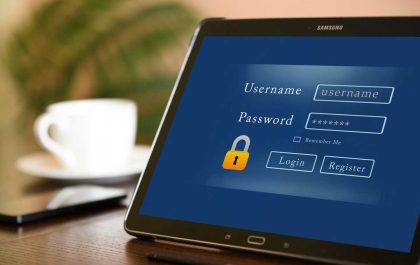IT Career? Here’s How Smart Home Technology Causes Problems :- If you’re going to school for a career in IT, then you should know that information technology itself can be advantageous as well as disadvantageous. Keep reading to learn more.
How Does Smart Home Technology Cause Problems?
When it comes to the topic of smart homes, IT, and healthcare, there is a controversial debate over patient privacy. Although some say patient privacy is extremely jeopardized by IoT devices, it is my belief that the benefits far outweigh the cons. Still yet, privacy concerns do remain prevail.
Take for example a recent situation that took place in Ohio. A person was a suspect in a criminal case. This person wore a pacemaker that used wireless technology to allow remote monitoring. During the case, a search warrant was obtained that allowed government officials to access data on the pacemaker and use it as evidence for a case regarding insurance fraud. The suspect was found guilty, however, this case sets a dangerous precedent regarding government officials’ ability to use one’s own medical data against them, particularly for criminal prosecution.
Security breach concerns are another major con of smart home technology when used for healthcare purposes. In fact, any type of smart technology presents security breach concerns. When a device is connected to the Internet, this makes it vulnerable to hackers. There was a Directed Denial of Service attack that took place in October 2016 in which it was proven that unsecured IoT devices had the ability to be converted into “bot-net” devices. This means hackers gained the ability to infiltrate hundreds of thousands of different servers and IP addresses. Once infected with malware, the hackers gained the ability to leverage the processing power of IoT devices and turn them against Dyn.
How to Improve Smart Home Safety
It is important to stay aware of different ways to improve the security of smart home devices. With better security comes the ability to make better use of smart devices for healthcare purposes. The elderly especially can make good use of smart devices by staying in touch with physicians and family, both of which are important for better health. Smart devices like Apple’s Siri and Amazon’s Echo both support voice-activated features, easily allowing the elderly to control everything from their thermostats to appliances, lighting, and more. Some can even control automated pet feeders. Having the capability to control such aspects of a home improves health, particularly for those who endure mobility issues.
But just as much as the devices help the seniors, I still recognize that there a concern of cybercriminal activity. However, I still hold firm to the belief that despite patient privacy and security concerns, the benefits of using smart homes to improve health far outweigh the possible downsides.
Fortunately, one of the easiest ways to prevent security breaches is to regularly update the passwords on smart devices. However, this doesn’t fully make the devices immune from hackers.
Any person using smart devices within their home should have an information technology professional connect the devices for them and securely sync them with the home’s Internet. Every so often, network testing should be performed to ensure no access by outsiders can be obtained. This will include ensuring the network is password-protected, with the password being updated once every three months. With proper monitoring by a professional, it becomes possible to mitigate the likelihood of cyberattacks, including those that comprise a resident’s banking data and identity information.
Conclusion
Many information technology specialists will readily agree that any type of smart technology opens a home up to possible attacks by hackers. And while there are many kinks to work out in smart device technology, it is still apparent that more personalized patient care can lead to better health outcomes. When a person has the ability to have their health monitored around the clock from the comfort of home, this in itself can improve one’s health. Mental health is much better when a person is at home rather than when admitted into a hospital for a long period of time. At home, a person enjoys a sense of comfortability that cannot be experienced at a hospital.
So, for those who have their concerns about security and patient privacy, it is only wise to take a look at the advantages gained from smart home technology when used for healthcare purposes. When carefully weighed, and especially when you place yourself in the shoes of a person who needs constant medical monitoring, it becomes easy to see that at-home, real-time monitoring almost always proves of benefit and outweighs the potential downsides.
Over the years, major advancements in smart technology have made smart devices more secure. As more advancements continue to enter the smart technology industry, it is only safe to assume that security will continue to become more robust. It is hoped that we get to the point that all security and patient privacy concerns are no longer present within the smart home technology industry, particularly when smart home devices are used for healthcare reasons and installed by IT professionals.
Also Read: How to prepare for an external audit
Related posts
Hot Topics
What is Kafka Used For: A Complete Guide
What is Kafka used for? If you’ve been diving into the world of distributed systems, microservices, or data streaming, you’ve…
How Do Password Managers Work? The Guide That Finally Makes Sense
Ever wonder how do password managers work and whether they’re actually safe? I get it. The idea of putting all…



